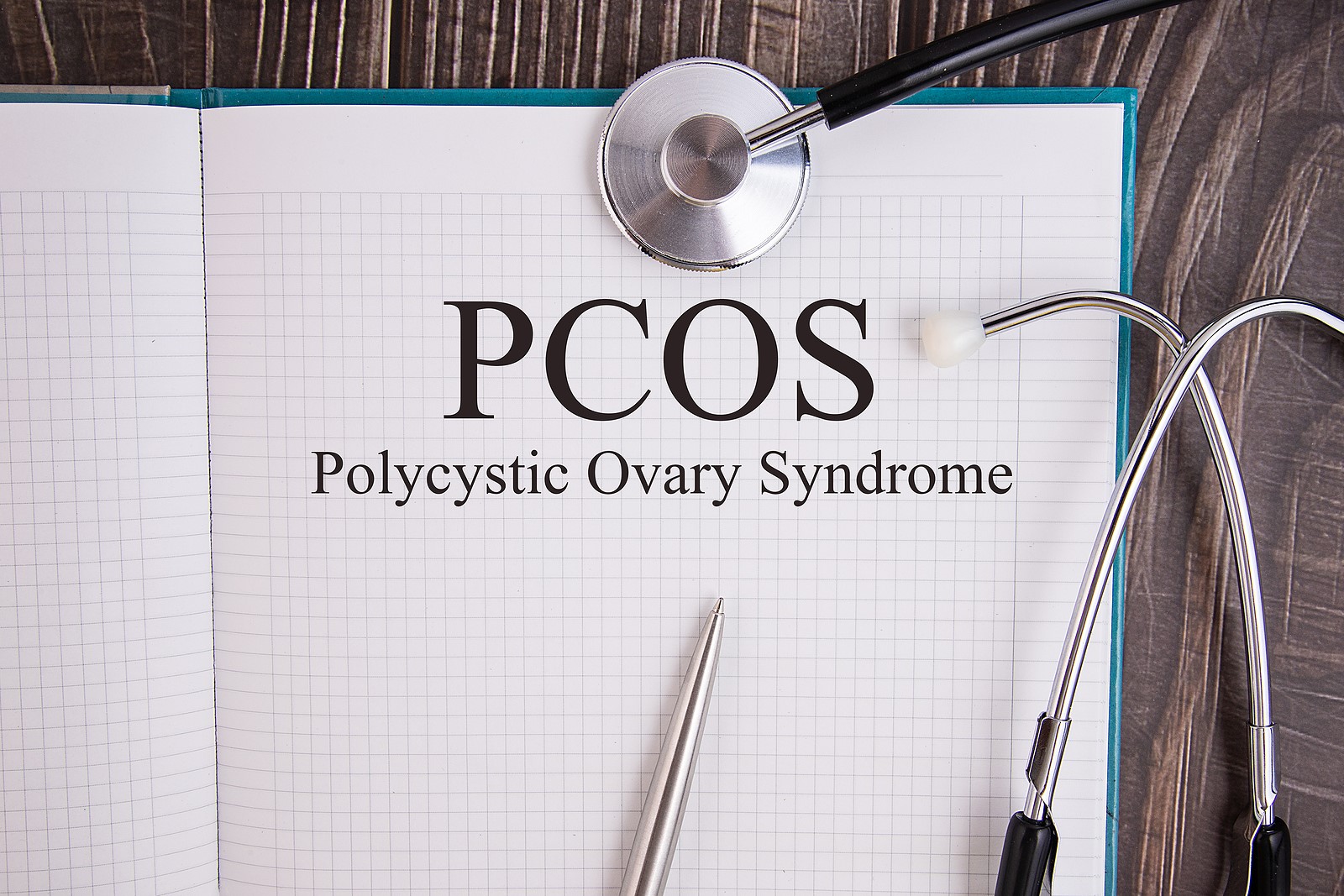
Polycystic ovary syndrome (PCOS) is a common hormonal disorder that affects women of reproductive age. PCOS is characterized by menstrual irregularities, excess androgen production, and polycystic ovaries. Left untreated, PCOS can lead to long-term health problems. Fortunately, there are many treatment options available for PCOS.
Symptoms of Polycystic Ovary Syndrome (PCOS)
Some of the signs and symptoms of PCOS are missing or having fewer periods (fewer than eight in a year). Alternatively, their cycles may occur every 21 days or more frequently. PCOS causes some women to stop having menstrual periods. It might cause too much hair on the face, chin, or other body regions where men typically have hair. This is referred to as “hirsutism.” Up to 70% of women with PCOS suffer from hirsutism. Other symptoms are acne on the face, chest, and upper back; male-pattern baldness—characterized by thinning hair or hair loss on the scalp; gaining weight or having trouble losing weight; skin discoloration, especially around neck creases, in the groin, and beneath the breasts; and small extra flaps of skin in the armpits or neck area, known as skin tags. (Women’s Health)
Polycystic Ovary Syndrome and Pregnancy
During pregnancy, women with polycystic ovarian syndrome (PCOS) are more likely to experience specific issues or complications. PCOS-related pregnancy problems include:
Early pregnancy loss or miscarriage: Women with PCOS are three times more likely than women without PCOS to miscarry in the first trimester of pregnancy. Metformin, a prescription drug used to treat Type II Diabetes, appears to lessen the risk of miscarriage in pregnant women with PCOS, according to several studies. (U.S. Department of Health and Human Services)
Gestational diabetes: Only pregnant women are at high risk for this type of diabetes. It’s treatable, and if it’s kept under control, it won’t harm the mother or the fetus too much. After the baby is born, gestational diabetes usually subsides. Babies born to women with gestational diabetes may be large (requiring C-section [surgical] birth), have low blood sugar, and have breathing problems. Type 2 diabetes is more common in women who have had gestational diabetes, as well as their children. (U.S. Department of Health and Human Services)
Preeclampsia: It is a condition that affects pregnant women. Preeclampsia, which occurs after the 20th week of pregnancy and causes an increase in blood pressure, can harm the mother’s kidneys, liver, and brain. The most common treatment for the problem is to deliver the baby, even if it is preterm. Preeclampsia may necessitate a C-section birth, which carries significant risks for the mother and the baby. (U.S. Department of Health and Human Services)
High blood pressure: This syndrome is caused by a rise in blood pressure during the second half of pregnancy. It can progress to preeclampsia if not handled. This form of elevated blood pressure might potentially have an impact on the baby’s delivery. (U.S. Department of Health and Human Services)
Premature Birth: If a baby is born before 37 weeks of pregnancy, it is dubbed “preterm.” Preterm babies are at risk for various health issues, both immediately after birth and later in life, and some of these issues can be life-threatening. (U.S. Department of Health and Human Services)
Serious Complications of PCOS
If you have PCOS and your androgen levels are too high, you’re more likely to have a variety of problems. Because of PCOS, ovulation can be hampered, making it difficult to conceive or get pregnant. If you have PCOS, you may still be able to conceive. However, you may need to take medication and work with a fertility doctor to achieve your goals.
Insulin resistance may lead your body to produce an excessive amount of androgens. The cells in your muscles, organs, and other tissues don’t absorb blood sugar properly if you have insulin resistance. As a result, your bloodstream may contain an excessive amount of sugar.
Another complication can be metabolic syndrome, which is a condition in which the body’s metabolism is disrupted. The risk of cardiovascular disease is also increased by this collection of symptoms. (WebMD)
PCOS Awareness is Key
PCOS is complicated and there is no one-size-fits-all solution for PCOS. With the help of a healthcare professional, it is possible to find the right treatment plan for you. If you think you may have PCOS, make an appointment with your doctor to get started on your road to recovery. Pregnancy complications require immediate care and may require a visit to the ER.
Works Cited
“Polycystic Ovary Syndrome.” Polycystic Ovary Syndrome | Office on Women’s Health, www.womenshealth.gov/a-z-topics/polycystic-ovary-syndrome.
“Does PCOS Affect Pregnancy?” Eunice Kennedy Shriver National Institute of Child Health and Human Development, U.S. Department of Health and Human Services, www.nichd.nih.gov/health/topics/pcos/more_information/FAQs/pregnancy#:~:text=Pregnancy%20complications%20related%20to%20PCOS,as%20are%20women%20without%20PCOS.&text=Some%20research%20shows%20that%20metformin,in%20pregnant%20women%20with%20PCOS.
“Polycystic Ovary Syndrome (PCOS): Symptoms, Causes, Tests, and Treatment.” WebMD, WebMD, www.webmd.com/women/what-is-pcos.





